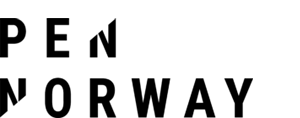Amin Maaloufs tale under avslutningsmiddagen 11. september
When my friend Kjell Olav Jensen, president of the Norwegian PEN, asked me to say a few words during this farewell dinner, I noted it was on Saturday evening, but I did not immediately notice the date…
When I finally realized our gathering would take place on September eleventh, I was, understandably, overwhelmed by memories of that dreadful day. How did I learn the news? At what time precisely? What was my very first reaction? Whom did I call?
Then I remembered what my father used to say about a colleague of his – they were both poets, old friends but slightly rivals in literature: “This gentleman is so self-centred that if you ask him how did the Second World war begin, he would tell you: ‘I was shaving when my brother rushed in to tell me that Hitler had invaded Poland’ …as if the world war had been launched from his bathroom.”
On that September eleven, I was not in my bathroom. I was already watching the news. I had been writing since early in the morning. Then, noticing it was almost 3 p.m. I had decided to listen to the news. I had heard on the previous day, or maybe on the day before, that there had been an attempt on the life of Ahmad Shah Massoud. There were conflicting reports; some saying he had been only slightly injured, and others saying he was badly hurt, and possibly dead. I switched on the TV, just in time to watch the breaking news signal: an unidentified airplane had just crashed into one of the twin towers.
Since I was a child, I had always listened to the news very closely. My father, apart from being a poet, was also a journalist. He rarely missed a news bulletin. I followed in his steps. Some of the greatest sorrows of my life were linked to international events. Some of my greatest joys as well.
The fall of the Berlin wall, fifteen years ago, was a personal moment of hope. After years and years of confrontation, which translated into many deadly local conflicts, and with the frightening Damocles sword over our heads – that pile-up of nuclear devices ready to destroy and overdestroy every living creature on our earth, now came the sigh of relief. The arms race had come to an end without even a gun being shot. It was almost a miracle. Our human species was such a wise brand of creatures! Now we could hope for the best! Democracy and freedom would now extend to cover the whole world. Humanity would get rid of its old ways, to enter into an era of reconciliation and peaceful competition. Ready, at last, to confront its true enemies, its common enemies: poverty, illiteracy, and disease.
Hopes were very high indeed. Although, in the nineties, came the internal conflicts in the former Yugoslavia, instances of religious strife and ethnic cleansing… Quite disturbing events, but, well, we said, this is the unavoidable adjustment period. We tried to believe that ethnic wars were the last song of the dying ghosts of the past. We could not imagine they were signalling the emergence of new ghosts that were coming to haunt our future.
Then came September eleventh. Not an accident. Not a natural disaster. But a manmade disaster that seemed to be an ominous introduction to the new century.
What went wrong? Why were our hopes so brutally dashed?
Those who pinned hopes, like I did, on the end of the cold war, may have overlooked one or two significant features of the world of yesterday. Namely: that it was divided along ideological and philosophical lines. And that it had been replaced by a world divided along identity lines.
I am not fond of ideologies, especially when they have so often led to appalling practices. But when people define themselves through their chosen ideology, there is room for debate. When people define themselves through their inherited identities, there is no room for debate. Everyone states and overstates his identity, and that’s it, there is nothing more to say. In today’s world, there is no true debate. Only shouting, imprecation, condemnation, mobilization. Hatred and hatred, violence and even more violence.
And when there is no debate, when there is so much mistrust, so much hatred, democracy and freedom cannot expand. In fact, they are receding, and one could expect them to recede even more in the years to come.
Every morning, we get up to learn that another bomb has exploded somewhere, that another massacre has been perpetrated. And there seems to be no end to it. The aftershocks of September eleventh go on and on and on.
This is not the world we dreamt of fifteen years ago! This is definitely not the future we hoped for.
Our world has lost its way, it is heading backwards. The West is fast losing its moral credibility, and nobody else seems to be offering valuable alternatives for mankind. Certainly not the Arab world where I come from!
Let’s face it: this entire world is in total disarray. It desperately needs to be re-imagined, re-invented, in order to be rebuilt on sounder grounds. We need to overcome that sterile conflict of identities. We need to build a human culture which would include significant elements of each culture, so nobody would feel excluded. So nobody would indulge in hatred and self hatred, in destruction and self destruction
Re-invent the world, re-imagine the future: that is not a task that should be left to political or religious activists. It is precisely the task of poets, essayists and novelists. It is up to the writers of the six continents to strike the right notes, to find the right balance between universality and diversity. Universality of fundamental human values, diversity of languages and cultural expressions.
It is ultimately up to us to determine whether our century will go down in history as the century of suicide or the century of imagination, the century of human folly or the century of human wisdom, the century of the bomb or the century of the pen.
At no time in History were writers more indispensable. At no other time in history was the burden of change so heavy on their shoulders.
Amin Maalouf
Tromsø – Norway
September 11th 2004


